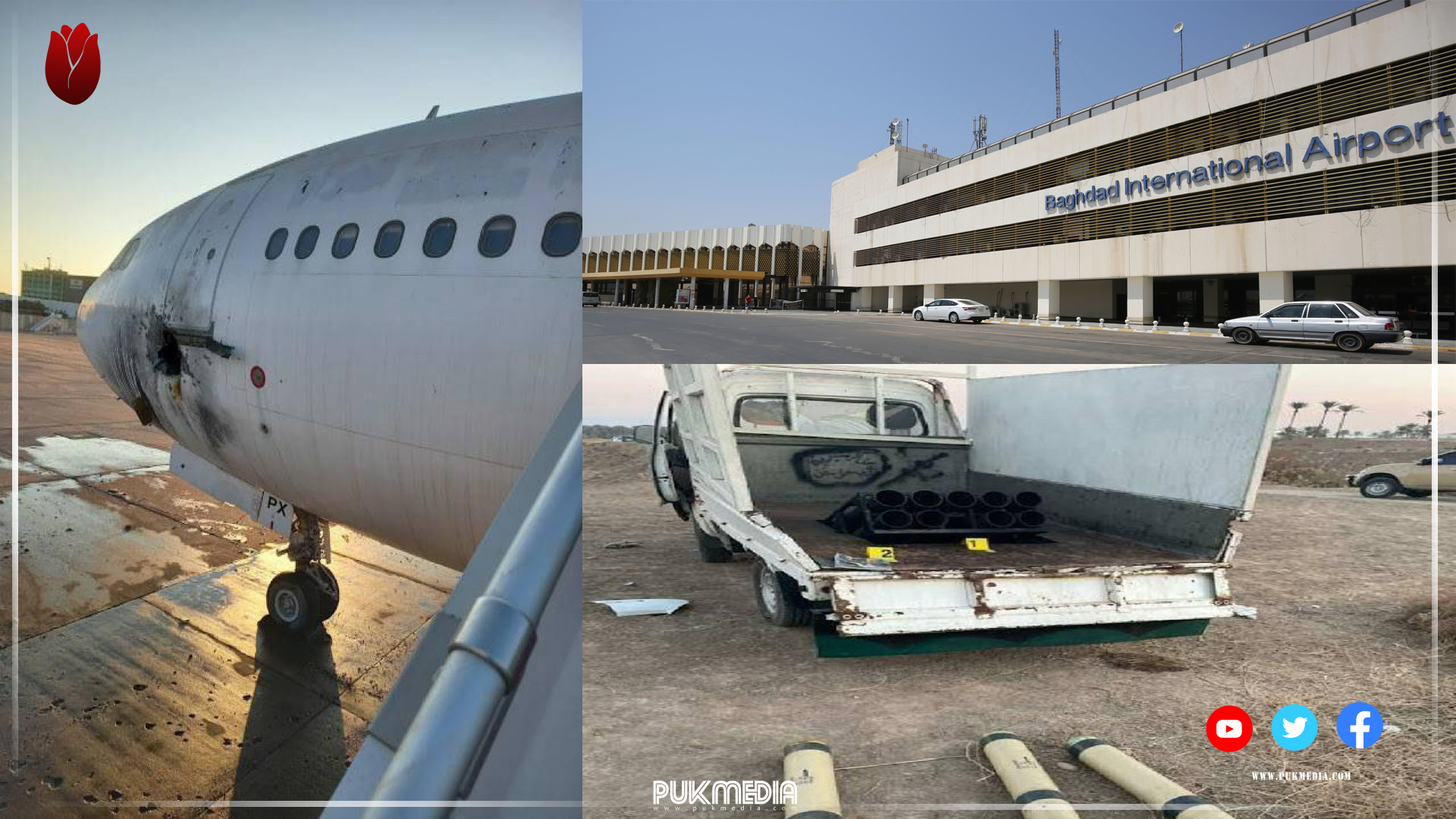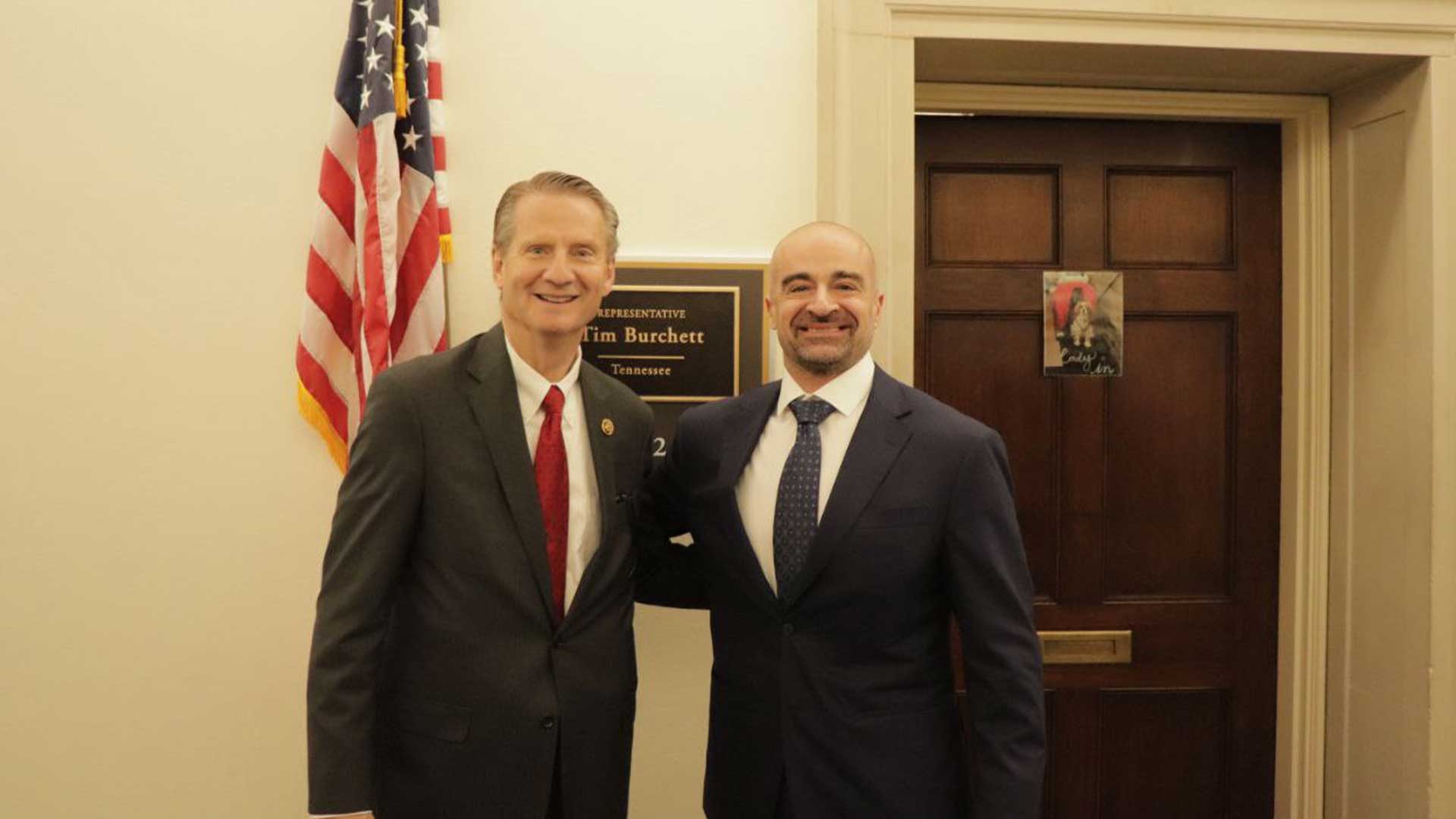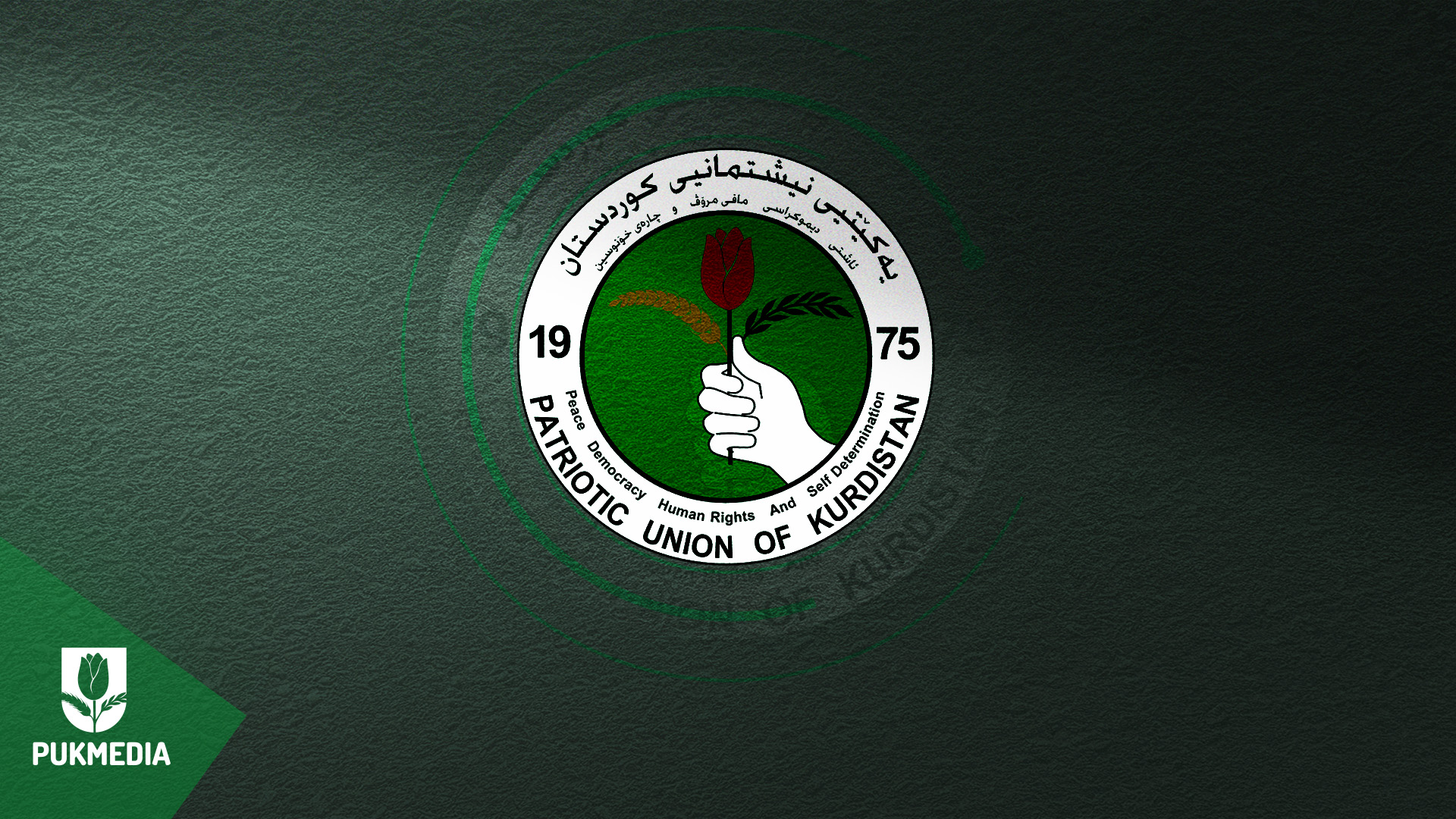Bombing Iraqi airports... Targeting the state and reactions amid economic losses
Iraq 04:45 PM - 2022-01-29
The bombing of Baghdad International Airport with missiles on Friday sparked governmental, local, and international reactions.
A security source announced on Friday, that Baghdad airport was hit by 6 missiles that damaged several planes.
The missiles landed in the runway area and areas close to the civilian side and caused damage to several planes without causing any casualties. No party has claimed responsibility for the attack.
Attacks on bases or installations hosting US military and diplomatic personnel in Iraq have been frequent with mostly causing little harm in the previous years. But the attacks have become more sophisticated in the past year with the use of fixed-wing and multi-rotor drones.
Attacking airports is a terrorist act punishable by death
Legal expert Ali al-Tamimi said in an exclusive statement to PUKmedia, that locally attacking airports is considered an international terrorist act according to Anti-Terrorism Law No. 13 of 2005 under Article 4 and punishable by death, stressing that the security services must hunt down the perpetrators.
"On the international level, this act violates the Fourth Geneva Convention of 1949 and the Convention on Civil Aviation, Chicago 1944, which considered planes to be part of the soil of the country to which they belong," he added, indicating that attack on these planes is therefore considered an attack on that country that owns the plane and exposes the country that plane has landed to international sanctions, under Articles 38 and 102 of the Charter of the United Nations.
The legal expert also pointed out that Iraq can request assistance from the U.S. under the Article 27 of 2008 agreement to reveal the criminals, noting that the continuation of these crimes against embassies and airports is a threat to international peace and security, and as we mentioned, expose Iraq to international sanctions.
Iraqi government should seek the assistance of international efforts to combat armed groups
For his part, political analyst Ali al-Baydar considered the targeting of Baghdad airport coincides with the degree of inaction with which state institutions deal with the recklessness and persistence of armed groups.
Baydar told PUKmedia, that these bombing operations come within a series of targets carried out by armed groups, starting with targeting diplomatic missions and American bases, bombing the city of Erbil, and ending with bombing the house of the Speaker of Parliament and Baghdad Airport, stressing that this bombing process leads to more Economic losses for the Iraqis and a clear breach of Iraqi sovereignty.
The political analyst stressed the need for a strategic plan to eliminate these Katyusha cells, indicating that in the absence of plans, Iraq will stand in front of a security situation that can not be controlled in the future, noting that the international community is looking at Iraq as a weak state that cannot protect its vital facilities.
Baydar criticized the security system in the country, adding, "There is more than one and a quarter million security personnel in various institutions on which the state spends more than 20 billion dollars. They have not been able to protect a vital facility in the center of the capital, so how will they protect the country's borders?"
Baydar added that the Iraqi government should seek the assistance of international efforts to combat armed groups on the ground, as happened with the threat of the Islamic State terrorist organization.
Finding important clues
Iraq's state media, the Security Media Cell, announced that important clues were reached regarding the airport attack while confirming that targeting the airport was a terrorist act that seeks to undermine efforts to restore Iraq's regional role.
Targeting Baghdad Airport endangers Iraq's interests
The Iraqi Civil Aviation Authority stated targeting Baghdad International Airport.
A statement by the authority said: "At a time when Iraq seeks to lift the ban imposed on air transport, return to normal, and keep its national airports and lines away from any international restrictions or sanctions, the targeting of Baghdad International Airport at dawn today with the criminals' missiles undermines all efforts seeking to remove what affects the country's reputation and endanger its interests.
It added: "What happened at dawn today, although it is not the first and was preceded by other attacks, this time it led to significant damage to one of the airport runways and two civilian aircraft in the southern area of the airport which represents a major violation of sovereignty and endangering the security of citizens and more suspicions for not meeting the requirements of the International Civil Aviation Organization, which will complicate Iraq's position and cause more sanctions, restrictions and moral and material losses.”
It continued: "As an authority competent to implement safety measures at all Iraqi airports, we strongly condemn such criminal acts and call on the responsible government agencies to help us find solutions to protect airports as a front for the country, and to prevent any actions of this kind that endanger the security and safety of citizens."
UNAMI concerned over attack on Baghdad Airport
The United Nations Assistance Mission for Iraq (UNAMI) issued a statement expressing its concern over the targeting of Baghdad International Airport.
UNAMI's statement said:
"The United Nations Assistance Mission for Iraq (UNAMI) is deeply concerned by the current wave of attacks targeting political party offices, residences as well as businesses in Iraq, and most recently the rocket attack on Baghdad International Airport.
These despicable attacks have caused injuries and material damage, harming peaceful citizens whose only wish is to go about their daily lives without fear of attack or death.
Although strongly condemned across the political spectrum, the perpetrators and rogue groups behind these callous attacks appear to enjoy impunity, acting recklessly and exposing the country to disastrous consequences.
It is therefore essential that all stakeholders move beyond condemnations and swiftly pull together to expose those behind it. At the same time, dialogue must be intensified to find solutions to any political dispute.
Once again, all stakeholders are called upon to exercise restraint and avoid falling into the trap of creating chaos amid a critical yet delicate transitional period."
Government response to the attack
Iraqi Prime Minister Mustafa al-Kadhimi said that the attack represents "a new attempt to undermine Iraq’s reputation, which we have endeavored to restore regionally and internationally".
He added the strike was part of a "frantic" rise in attacks over the past few months that aim to destabilize the country.
"The Iraqi security forces, which have taken their full role in providing security and confronting terrorism in all its forms, will have a decisive response to this type of dangerous operation that is supported by agendas against Iraq's interest," he said on Friday.
Kuwait Airways suspends flights to Iraq
Kuwait Airways suspended its flights to Iraq due to "the current situation there", the Gulf country's flag carrier said in a Twitter post on Saturday.
The decision comes in line with instructions issued by Kuwait's civil aviation authority, the airline added.
Several rockets landed in Iraq's Baghdad International Airport compound on Friday, damaging at least one disused civilian airplane.
Millions of dollars in annual losses
The researcher and consultant in the field of aviation, Faris al-Juray, estimated the economic losses caused by the bombing of Baghdad International Airport at millions of dollars.
In an exclusive statement to PUKmedia, Juray said that the characteristics of aviation are based on two basic issues, namely security and safety.
"With the bombing of Baghdad International Airport, the airport lost both characteristics," he added, pointing out that the loss of the security component leads airlines to stop operating their flights to Iraq, and this is what happened with Kuwait Airways, as was previously indicated.
Juray estimated the economic losses, at thousands of dollars monthly, and millions of dollars annually, because the airport and the Iraqi airspace make money through its airspace and the landing of planes in the runways.
He also indicated that other companies will likely take the same course as the Kuwaiti company by stopping its flights to Iraq.
PUKmedia
More news
-
DPM Talabani: I Appreciate Spanish Ambassador’s Efforts in Improving Relations Between Both Countries
06:32 PM - 2024-05-08 -
Two Emirs, 6 Terrorists Arrested by Kurdish Security Forces
09:40 PM - 2024-05-06 -
DPM Talabani: Kurdistan Has a Skilled Workforce
07:00 PM - 2024-05-06 -
PUK President Arrives in Washington
06:46 PM - 2024-05-06
see more
PUK President: We Maintain Our Relations For the Sake of National Interests
03:42 PM - 2024-05-09
PUK President: PUK is Committed to Resolving Issues
06:48 PM - 2024-05-08
PUK President: We Emphasize the Necessity of Holding Timely Elections
03:29 PM - 2024-05-08
The PUK Appeals the Council of Commissioners' Decision
02:26 PM - 2024-05-08
Most read
-
DPM Talabani: I Appreciate Spanish Ambassador’s Efforts in Improving Relations Between Both Countries
Kurdistan 06:32 PM - 2024-05-08 -
PUK President: PUK is Committed to Resolving Issues
P.U.K 06:48 PM - 2024-05-08 -
PUK President: We Maintain Our Relations For the Sake of National Interests
P.U.K 03:42 PM - 2024-05-09 -
Washington's Newlines Institute Interviews PUK President
Interviews 05:40 PM - 2024-05-09






 Application
Application


